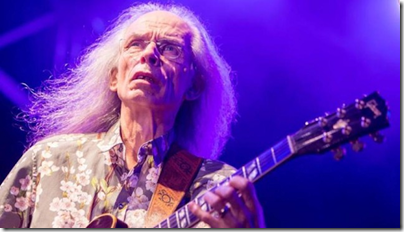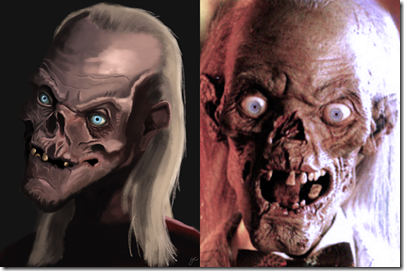Tucson's Chicago Music Store was an Institution
27 December 2020 • by Bob • Arizona, History, Music
Tucson's Chicago Music Store recently celebrated its centennial, and I must admit - I have a special place in my heart for that store. Growing up as a young musician in Tucson, I was intimately familiar with it.
Back in the late 1970s and early 1980s, I used to visit the Chicago Store all the time and haggle with Joe (who ran the place) over pieces of vintage gear that clearly had no actual value to Joe whatsoever. Joe always seemed cranky, and on one occasion he threw me out of the store when I called him a thief for starting his half of the negotiation far too high and refusing to budge.
However, on a different day, I had been haggling with Joe for several minutes when he had to take a phone call. After he walked away, his brother, Phil, walked over and explained the following to me: the Chicago Store had already made Joe a rich man (in 1980s money), and Joe didn't actually need the work. Phil continued by saying that Joe simply loved to haggle, and if I was willing to put in the time and give Joe a good fight, I could eventually get a good price.
This changed my whole world, and I started to budget several hours per trip to the Chicago Store just in case I found something that was going to require a little more time to negotiate. Over the years I bought a lot of great gear from the Chicago Store, and to this day I still own several items that I bought there. But more than that, I learned how to give Joe a "good fight," and I walked away with dozens of great deals.
Joe and I never grew close enough to be friends, of course, because I was never more than a customer to him, but I'd say beyond a shadow of a doubt that I had become one of Joe's "regular customers," and he always greeted me with a huge smile every time I entered his store - whether I bought anything at all.
I was terribly saddened when Joe and Phil both passed away several years ago.
POSTSCRIPT:
Here are a few articles about the Chicago Store's and it's future.
RIP Eddie Van Halen (1955-2020)
06 October 2020 • by Bob • Music, Guitar
This news came as an absolute shock when I heard it earlier today: Eddie Van Halen, Hall of Fame Guitarist Who Revolutionized Instrument, Dead at 65.
Like thousands of other guitarists, Eddie Van Halen (EVH) was my first guitar hero. His band, Van Halen, hit the music scene in 1978, which was the same time as I began to play guitar. I spent countless hours learning dozens of Van Halen's songs on the guitar and playing them live at various gigs throughout my younger days.
There are a handful of guitarists who I would say profoundly influenced my life as a musician, and EVH would easily be in my top five. EVH was a true pioneer, and his influence wasn't just on me; I think EVH inspired more guitarists than any other guitarist in history - even more than Jimi Hendrix, Eric Clapton, and Jimmy Page. As far as music in general is concerned, you could probably make the argument that few musicians in all of history have had as profound an impact, both for their instrument and their genre.
EVH's signature solo "Eruption" was the sound that launched a thousand imitators. While some might make the argument that this guitar player or that guitar player played this or that solo better than EVH, the fact remains that - for all intents and purposes - EVH did it first, and he did it better than anyone before him. EVH was a true innovator, whose technical skills and unique approach to the guitar was directly responsible for thousands of other people's careers.
I'm a big fan of Rick Beato's YouTube Channel, and a couple of years ago he created the following video, which describes Eddie's profound influence on guitar playing and rock music better than I could ever do.
EVH struggled with myriad health and substance abuse issues for decades, and it was great to hear that he was clean and sober from 2008 onward. But still - I think the years of physical abuse finally took their toll on him, and I was deeply saddened to hear that EVH lost his battle with cancer today at the young age of 65.
As I have grown older, it has been difficult to say goodbye to my childhood heroes. Chris Squire of Yes passed away in 2015, Keith Emerson and Greg Lake of ELP both passed away in 2016, and Neil Peart of Rush passed away in January of this year.
Despite the fact that I never met any of these musical influences, I somehow feel like I've lost several close friends. That isn't supposed to happen. Heroes are supposed to ride off into the sunset. They're supposed to be immortal. Heroes aren't supposed to die like ordinary people.
RIP EVH. You will be sorely missed.
POSTSCRIPT:
If I was to pick my top five six guitar influences they would be (in no particular order): Eddie Van Halen, Alex Lifeson, Steve Howe, David Gilmour, Randy Rhoads, and The Edge. While I have been influenced by dozens of guitarists, I can honestly say that something from each of the guitarists that I listed shows up in my playing almost every time I play the guitar. (For more about that train of thought, see my A Few of My Favorite Guitar Solos post from several years ago.)
A Few Thoughts about Trevor Rabin
04 October 2020 • by Bob • Music, Guitar
Trevor Rabin slowly emerged as one of my favorite guitarists. I first learned of him when he was working with Manfred Mann in the early 1980s. (Thankfully I had missed his debacles with the glam rock band Rabbitt.) When the song "Owner of a Lonely Heart" came out in 1983 and became a huge hit, I wondered what the heck Rabin was doing with Yes, and how badly would he ruin the band. However, that feeling evaporated as I heard more of the 90125 album. Oh sure, that particular musical offering was more about creating "pop music" than "progressive rock," but still - Rabin had some SERIOUS musical chops.
When I saw Yes in 1984 during the Tucson stop of their 90125 tour, Rabin upped his game to a whole new level in my estimation. He completely nailed songs from both catalogs of Yes' music - both the old and the new. In fact, I much preferred Rabin's live versions of classic Yes songs like "And You and I" and "Yours Is No Disgrace" over Steve Howe's live versions. Rabin was far more meticulous than Steve Howe at getting all of the guitar parts right in a live setting. On the other hand, Steve Howe seemed to wander all over the neck in a never-ending stream of musical ramblings on every live Yes recording, which often sounded like he was almost drunk. However, Rabin also added some unique parts of his own to those vintage pieces; I had to admit that Rabin added parts where Howe would never have thought to add them, and in the end I thought Yes' music with Rabin's additions were sometimes better than the originals.
After the Tucson concert had ended, a few friends and I met Yes backstage, and Trevor Rabin was one of the nicest guys you could ever hope to meet. After our group of friends had an informal meeting and autograph session with the entire band, most of the band members wanted to climb into their waiting limousines and speed off to their hotel for the night. But Rabin was involved in a great discussion about music with my friend Larry and me, so Rabin waved them off and said he'd catch up with the rest of the band later.
Larry was the drummer for a band that we were both in at the time, and our discussion with Rabin was simply about music - and that's it. Rabin wasn't acting like a rock star, he wasn't basking in the adulation of fans, and we weren't showering him with adoration and compliments. The three of us were talking about guitar effects, and production techniques, and songwriting, and about music in general. In short, this was simply three normal guys having a normal conversation about their favorite subject.
During the course of our discussion, I told Rabin that I thought he was a great replacement for Steve Howe, who was the predominant guitarist for Yes during the 1970s. I immediately sensed that I had touched on a sensitive subject, so I let it drop. However, some years later I was reading an interview with Rabin in a guitar magazine, and he said that the hardest thing for him while he was a member of Yes was constantly being compared with Howe. That's not what I meant to do, and I felt badly that I had been part of that experience for him.
A few years later I joined the US Army, and by the late 1980s I was stationed in Germany. If you've read any of my military-related posts, you'll know that I spent a lot of time out in the woods chasing bad guys. However, when I wasn't working, you would find me curled up with a Tom Clancy or Michael Crichton novel, and quite often I was listening to Trevor Rabin's Can't Look Away album. Once again, it was more of a pop music album, which was different than my general preference for progressive rock. Still, I had this album on cassette, and I nearly played it to death during my tenure there. The following video features the song "Something to Hold Onto" from that album, and it's a great example of just how weird an 80s rock music video could be.
In 1991, I caught Yes on their Union tour in Frankfurt, Germany. During this concert, I saw Rabin save the show when the audio for Howe's guitar dropped out during "And You and I." For some reason, Howe's sound vanished from the mix during the acoustic breakdown in the middle of the song. Rabin had been standing off to the side, but when Howe's guitar disappeared, Rabin jumped over to his pedal board, hit a couple buttons, and came up with a plausible acoustic sound to finish the section, with barely a moment or two of dead time. Thanks to the wonder of the Internet, I eventually found a video of that show. The camera was predominantly focused on Squire and Anderson so you can't see everything that's happening, but you can hear it. If you watch the following video, you can hear Howe's guitar disappear around the
Rabin eventually left Yes, and he spent several years writing soundtracks for movies. (IMDB currently lists him with 60 credits as a film composer.) However, in 2012 Rabin released his Jacaranda solo album, where he showed that he still hasn't lost his touch as a guitarist. In addition, the following video shows that he hasn't lost his touch with odd music videos, either.
In what would seem like a rare moment in musical history, the surviving members of Yes put their pasts behind them and teamed up to play a couple of their classic songs when they were inducted into the Rock and Roll Hall of Fame in 2017. (Quick side note: Chris Squire, the longtime bassist of Yes, had recently passed away, and Geddy Lee from Rush filled in for him.) It was nice to see Rabin back with the group, and to be honest - the following video shows that Steve Howe isn't aging well; his guitar chops are starting to fade, and he made several embarrassing mistakes. On the other hand, Rabin looks like he's having a ball, and he seems to have a great musical rapport going on with Geddy Lee. (Hmm. Perhaps the two of them should do a side project together?)
One day, I'd like to meet Trevor Rabin again and apologize for my poor choice of words from when I met him back in 1984. It's a poor excuse, but I was only 18 years old at the time. I honestly meant what I said to be a compliment, and I didn't realize how Rabin would receive that. Who knows? Maybe some day I'll get the chance.
POSTSCRIPT:
On a totally unrelated piece of trivia, the writer and director Joss Whedon is a big fan of Yes, and I recently learned he named his Mutant Enemy Productions company after the acoustic breakdown section of Yes' song "And You and I."
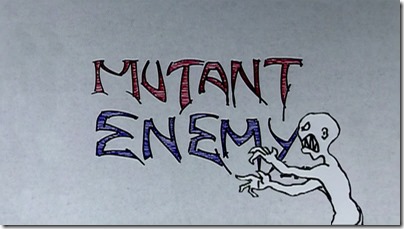
The lyrics for that section of the song are:
"Sad preacher nailed upon the colored door of time.
Insane teacher be there, reminded of the rhyme.
There'll be no mutant enemy we shall certify;
Political ends as sad remains will die.
Reach out as forward tastes begin to enter you."
You can store that piece of trivia awesomeness for a rainy day...
Christian Progressive Rock is a Small but Necessary Genre
02 September 2020 • by Bob • Music, Guitar
I mean no disrespect to anyone - including my wife - but I personally find the majority of what is called "worship music" within the church to be insufferably boring when heard outside of a formal church service.
99% of the time that music is based around some arrangement of the I ii IV and V chords, with the occasional vi chord to mix things up.
I'd also say that 90% of the time that music has a time signature of 4/4, with another 7% of 3/4, and the remaining 3% being mostly of 6/8.
Adding insult to injury, most of the contemporary "worship" lyrics are utterly pedestrian and predictable. You could take a list of about 100 words from popular "worship songs" and write them on 3x5 cards, then toss them on a table and arrange them in some sort of random order and you'd pretty much have recreated the next Chris Tomlin "hit."
There was a time that I was working on an "Instant Worship" website as a joke, which would have used something akin to a "Mad Libs" type of algorithm to kick out random lyrics with bogus chord charts based on everything I have mentioned in the preceding paragraphs.
Suffice it to say, if it were not for prog I would have gone crazy years ago. I accepted Jesus in my late teens in 1984, and I spent years listening to a conglomeration (or conflagration?) of Christian music's "rock" offerings. Bands like Petra were the powerhouses in that genre, and yet - I had been listening to Rush and Yes and Genesis and a host of prog bands before my salvation; Petra was nowhere near the level of musicianship or complex arranging as secular proggers.
I had heard of Phil Keaggy in the late 70s, but it wasn't until I heard King's X in the early 90s that I thought, "Wow - a Christian band with serious prog skills." (Yes, I know King's X seriously backslid in later years, but in their heyday they were awesome.)
Iona and some other Christian proggers came along later, and several pieces from Iona's catalog definitely hit the mark. Although I know several prog fans who grow quickly tired by their Celtic influence. (Irish music doesn't appeal to everyone. Although I'm of Irish heritage so it works for me.) But still - I often feel that there's an itch that I just can't scratch when I think about Christian music. (Which, by the way, is the only music I buy.)
These days I have been particularly impressed by several of the spin off projects and musicians who are operating with Neal Morse's realm of influence. See the following video for an example of what I mean, although that particular song is more a pop/rock piece than prog until you get to the bridge, but having seen them live, holy cow - amazing musicians.
Some of the projects involving Matt Smith of Theocracy are also great. See the following video for Project Aegis as an example.
With all of that being said, more often than not I find that I cannot kick back and enjoy most of what exists within the banal realms of what Christian music typically has to offer, but I can get totally lost in a great prog piece of music.
UPDATE:
Much of what was written above was extracted from a post that I had made in the Christian Progressive Rock Online Gathering (CPROG) group on Facebook. Someone challenged my statements about Iona, to which I replied:
"Pieces here and there from Iona's catalog definitely hit the mark; that's why I intentionally singled them out. Although I know several prog fans who grow quickly tired by their Celtic influence. (Irish music doesn't appeal to everyone. Although I'm Irish so it works for me.)
However, if you look at the brilliance behind albums like Fragile from Yes, or Lamb Lies Down on Broadway from Genesis, or Brain Salad Surgery from ELP, or Permanent Waves from Rush, etc., I can think of no albums in their entirety from the Christian Prog genre that approach those masterpieces. Because if they did, they'd also be popular outside of the incredibly tiny genre that is Christian Prog. So to reiterate: Iona is some of the best that Christian Prog has to offer, but overall - the Christian Prog genre is seldom everything that it could (or should) be.
PS - I should add that I have everything that Iona produced, to include their live videos. As far as Iona is concerned, I am quite the fanboy, and one of my regrets is that I never had the chance to see them live."
And then, much to my horror, Dave Bainbridge - one of the musical visionaries behind Iona - posted the following:
That's great Robert. Have you heard my albums Celestial Fire, and Veil of Gossamer? Both are more 'progressive' than most of my work with Iona. https://www.musicglue.com/iona/shop/categories/dave-bainbridge
I had to quickly re-read all of my earlier statements to see if I'd insulted Iona in any way... which I probably did. Not by intention, of course, but still... crap.
![]()
Yup, there's nothing quite like inadvertently insulting one of your favorite musicians in a public forum to remind yourself that anyone can read what you say.
Transcribing Shallow by Porcupine Tree
25 May 2020 • by Bob • Guitar, Music
One of the things that I like about certain pieces of music is "groove," which is hard to describe in words - but you'll know a good groove when you hear one. Several of the pieces that I have transcribed in the past fall into the "great groove" category, which is largely why I transcribed them in the first place; the groove of each respective piece got under my skin, and today's transcription clearly belongs in that collection.
Without further discussion, here's my transcription of "Shallow" by Porcupine Tree. (See https://youtu.be/tIgONIbYSyY for the original song.)
Here are my notes about this transcription:
- The most-glaring omission from this transcription is the organ part; it's featured in the second verse and in other places, and I didn't bother to transcribe it because - I didn't want to. So there.
- I tried to dial in the piano part, but even I can tell that it's not perfect. To be honest, this transcription was more about the guitar/bass/drums.
FWIW - I originally transcribed this song several years ago, but I was thinking about it the other day, and I decided to revisit it. After making a bunch of changes, I decided to post the revised version as a blog, which will hopefully help someone in the future.
That's all for now. Enjoy!
Transcribing Black Flag by King's X
06 March 2020 • by Bob • Guitar, Music
I had this song stuck in my mind for a few days, and occasionally the best way to get a song unstuck is to transcribe it. With that in mind, here's my transcription of the King's X song "Black the Sky" from 1994. (See https://youtu.be/OtOb2_3YOCE for the original song.)
This piece is a perfect illustration of how cool "Drop B" tuning can be... and transcribing it made me seriously regret selling my 7-string guitar. ![]()
Once again, my transcription is pretty faithful to the original, and here are the main differences that I can think of:
- Ty Tabor used a wah pedal to play the guitar solo, but I used an autowah for my transcription playback. That's because I didn't feel like manually notating all of the wah pedal wizardry that Ty was doing. Was that laziness on my part? Perhaps. But the autowah sounded good enough for me.
- At measure 14, Ty changes the chords on the first pass and the second pass through the chorus. However, I wanted to make the transcription a little easier to read/write, so I notated the chords from the second pass through the chorus. Was that laziness again? Perhaps. Deal with it.
- I have to admit, there are parts of my bass arrangement that lend themselves to Tim Starace's excellent bass cover of this song on YouTube. (Tim plays it much better than I would, though.)
On a related side note, I have transcribed a few pieces by King's X, and one thing that I've learned to appreciate is Jerry Gaskill's drumming. I grew up listening to guys like Neil Peart, Bill Bruford, Carl Palmer, Mike Portnoy, etc. In other words, I predominantly grooved to the giants of the Progressive Rock genre. But there are certain drummers - like John Bonham - who lay down a steady groove that underscores a lot of cool stuff that's going on in the rest of the piece. (See https://youtu.be/UvOm2oZRQIk.) With that in mind, Gaskill's drum parts are never mind-blowing, but they definitely create a solid foundation. (And of course, Jerry sings harmony while playing, so he's got that going for him, too.)
Choosing the Right Guitar Strings
24 February 2020 • by Bob • Guitar
I've shared a lot of Rick Beato's videos on social media before, but humor me. The following video has a great explanation and demonstration of the difference that the gauge of string will make.
I'm not sure which string gauges my fellow electric guitarists use, but long ago I settled on two off-the-shelf sets that go on all of my electric guitars:
- Fender 3250L Super Bullet Lights (.009-.042, which I primarily use on my Strats)
- D'Addario EXL120BT Super Light, Balanced Tension (.009-.040, which I use on most everything else)
That being said, I experimented for several years trying to find the gauge that I was most satisfied with when playing electric guitar. In the late 70s, I was fortunate enough to have a guitar store nearby that sold individual guitar strings. (The long lost "Sunshine Music.") So I experimented with buying specific strings and finding what worked best for me. I eventually settled on a custom set that ranged from .008 to .038, which - of course - sounds like the range for a stock .008 set, except that I had altered a few of of the the middle strings for specific tone/strength differences. Once that store folded, I was forced to go back to off-the-shelf sets.
Back in the day, I loved the Ernie Ball .008 to .038 gauge; they were bright and easy to abuse with multi-note bends. But they had one glaring problem for me: in the early 1980s I used the whammy bar - a LOT. (Hey, it was the 80s.) But with that in mind, I completely destroyed all of the strings in a gauge that light; those strings simply could not stand up to the whammy bar abuse. I eventually switched to .009 gauge just to reduce the frequency of broken strings. But the main weakness that I was running into was where the string wrapped around the ball end; that was the primary culprit for most of my string breaks. At one point in my life I would break at least one string per gig, and since I never kept the spring cover on the back of my Strats, the ball end would shoot off like, well - a bullet, which should not be confused with the Fender strings I would later use.
And that makes a great segue, because I soon discovered the Fender Super Bullet Light .009-.042 strings, which had a molded end instead of a ball end. That design change meant that I could abuse the heck out of those strings with a whammy bar and they could stand up to everything I threw at them. Since I was predominantly playing Strats and Kramers that both could use Super Bullets, they became my string of choice until sometime in the early 2000s.
All things change over time, and I eventually drifted away from my Strats and Kramers, which was primarily due to my wanting to shift back to the sound of double-coil humbucker pickups. (And yes, I could have mounted humbuckers on my Strats, but I decided to change back to Les Paul guitars... 'cause - you know - they're Les Pauls. Oh, and an Explorer, too.) However, the Super Bullet strings did not fit into the Gibson stop tailpieces, so I needed to find a new set of strings. After trying several sets, I decided on the D'Addario EXL120BT .009-.040 strings, because I wanted the strength of the .009-.015 high end strings with the lighter .022-.040 low end strings.
So, there you have it - 40+ years of electric guitar string choices condensed into a few paragraphs.
Transcribing Lost in Germany by King's X
18 November 2019 • by Bob • Guitar, Music
It's been a few months since I posted a guitar transcription, but that doesn't mean that I haven't been working on transcriptions - I just haven't been posting transcriptions. That being said, I decided that I was long overdue, so here's today's offering: "Lost in Germany" by King's X. (See https://youtu.be/hoyuCg-Exjs for the original song.)
Once again, my transcription is pretty faithful to the original, here are the main differences that I can think of:
- The primary artistic license that I took was to remove some of the extraneous repeats from the outro, and I added an ending chord since the original recording fades out. That being said, I thought that the
A (add 11/no 5) chord that I ended with matches the song quite well. - In measure 17, Ty Tabor changes up the guitar line for that single measure. However, I elected not to include that because I wanted to use the four repeats to simplify my transcription work. Yeah, that's kind of lazy on my part, but this is a free transcription so deal with it.
- I think I do a pretty good job of nailing Jerry Gaskill's drum parts throughout the song. During the extra repeats in the outro he changes his fill at the end of each four-measure passage, and since I shortened my transcription you lose those.
- I listened carefully to Doug Pinnick's bass parts, and I think my transcription of his parts are pretty close to what he's playing; I couldn't hear anything overly complex, though his groove/timing are really cool.
That's it for now. I have a few other transcriptions in the works that should be surprises, but I have no idea when I'll deliver on those, so don't hold your breath.
My List of 20 Most Influential Albums
18 November 2019 • by Bob • Music, Guitar
I was recently challenged by two good friends (on the same day, no less) to post a list of the 20 albums that had the greatest impact on me. To be honest, I usually do not go in for that sort of thing. However, seeing as how I've already posted blogs for My Top Ten Favorite Rock Songs, A Few of My Favorite Guitar Solos, and My Thoughts About Rush's Studio Albums, I thought this was the kind of challenge that warranted a response - with one caveat: I'm too impatient to spread my list across 20 days. With that in mind, you get the whole list in one heaping serving of musical goodness.
Before I go any further, I want to establish a few particulars about the way I write my lists that I have used for the other lists that I have posted. First and foremost is that I only allow myself to have a single entry for each band/artist, otherwise I could easily fill an entire list with only two or three of my favorite bands. Second, you might find it interesting that some of the bands/artists who show up in my list of favorite rock songs or favorite guitar solos are not on my list of influential albums; for example: the Who. While "Baba O'Riley" and "Won't Get Fooled Again" are two of my all-time favorite songs, I cannot point to any single album by the Who that I would consider as having had an influence on me. In addition, I would like to point out that several of the bands/artists listed here I haven't listened to in decades; these bands/artists were influential when I was starting out, but I abandoned them later as I progressed as a musician.
With all that being said, let's jump into the list - which is not necessarily in order. (Except #1 - which always belongs there.)
|
|
|
|
|
|
|
|
|
|
|
|
|
|
|
|
|
|
|
|
Conspicuously missing from this list are a few bands/artists whom I should honorably mention:
- King's X - I love most of their albums prior to Tape Head, (which was a bit of clunker in my opinion). Ty Tabor's guitar parts are amazing, and while I have taken the time to learn a few of their songs, I cannot honestly say that any of their albums had any serious impact on me.
- Queen - I loved Queen, Brian May's guitar work is amazing, and I certainly learned how to play several of their songs. But once again, I cannot point to any of their albums and say that it had any impact on my playing.
- Aerosmith - I learned several songs of theirs over the years, although I was never a full-fledged fan of theirs. Joe Perry was an amazing guitarist, and I picked up a few things from him, but I can't point to any single album as being influential in my life.
- Stavesacre - I believe that I have seen Stavesacre more times in concert than any other band. (Well, maybe a couple times less than Rush.) And even though I have learned how to play several of their songs on the guitar, I can't say that they helped me develop as a musician. (Stavesacre came along after I'd already been playing for decades.)
- The Who - As I mentioned in my introduction, I love the Who; I've seen them in concert, and I've learned a lot of their songs over the years. But still, I cannot say that any single album from them had a profound impact on me. (Although their album Who's Next almost makes the cut.)
- Gary Moore - As both a solo artist and as a member of bands like Thin Lizzy, I learned several pieces from Gary Moore, and a few of his guitar pyrotechnics used to show up in my live guitar solos. (Just the flashy bits.)
- And last but not least - Styx, Journey, Zebra, and 38 Special also had small degrees of impact on me as a guitarist.
That wraps it up for this post.
UPDATES
As time goes on, I'll add any glaring omissions from my list of honorable mentions as I think of them.
- The Police - I wasn't crazy about Sting's voice when I first heard The Police; I couldn't figure out why a former British punk rocker had such a weird accent. But as a guitar player, I was amazed at Andy Summers' tone and chord structures; I still get arthritis just thinking about playing some of Andy Summers' rhythm guitar parts from songs like "Message in a Bottle," "Every Breath You Take," etc.
- Stephen Bennett - I saw Stephen Bennett in concert at one of the Hammered Dulcimer festivals that I attended, and I was amazed at his fingertyle skill; he played Scott Joplin rags on the guitar, he played harp guitar, he played an amazing/ancient steel guitar, etc. As I attended other festivals, I was able to take workshops with Stephen, and I picked up some great techniques. Some years later I arrived early to one of Stephen's concerts; he recognized me, and stopped by to say "Hi." We began talking about guitar, of course, and as we were discussing some of the Scott Joplin pieces that I was working on, Stephen took me backstage where the two of us had an impromptu 1:1 guitar lesson. (Stephen was the teacher, of course.) Stephen had a lasting impact on my playing, but on top of that - he's a class act.
- Mark Hanson - I made an amazing discovery one day: a lot of fingerstyle guitar transcriptions that I had been learning from over the years, as well as several of the books about playing fingerstyle guitar that I had been working through, were all written by the same guy - Mark Hanson. Then I made another amazing discovery: Mark lived in Portland while I lived in Seattle, and Mark would frequently travel up to Seattle to teach workshops at the Dusty Strings store in Fremont. I was able to attend several workshops with Mark, and I will freely admit - his 1:1 instruction has helped my fingerstyle playing improve dramatically. (And I play several of his arrangements to this day.)
- Steven Saulls - I cannot possibly overstate the following admission: Steven Saulls impacted my guitar playing more than any other guitarist in my lifetime. Period. Steven was my classical guitar tutor in the early 1980s, but most-importantly - Steven showed me everything that I was doing wrong on the guitar. Until I met Steven I was predominantly self-taught, and as a result - I had formed a lot of bad habits. Steven gave me a whole list of extremely tedious exercises to work with, and challenged me to completely relearn how to play my instrument. I felt like a high school student going back to kindergarten, but I followed Steven's suggestions to the letter, and ultimately I became a much better musician because of it.
When Your Heroes Grow Old
13 September 2019 • by Bob • Music, Guitar, Humor
I grew up listening to Yes - they were some of my original music heroes, long before I got into bands like Rush. That being said, I am profoundly aware of that fact that as I grow older, my heroes are growing older, too. But some of us aren't aging that gracefully.
Just the other day I saw the following photo of Steve Howe from a recent Yes tour:
I hate to say it, but the first thing I thought of was the Crypt-Keeper from the old Tales from the Crypt television series:
Now that you've seen that, you cannot unsee it. You're welcome.
![]()
![]()
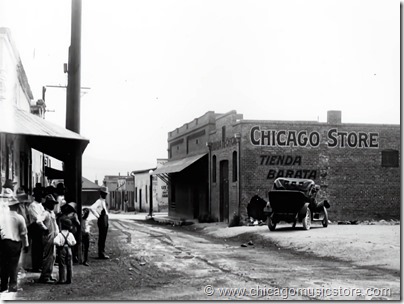
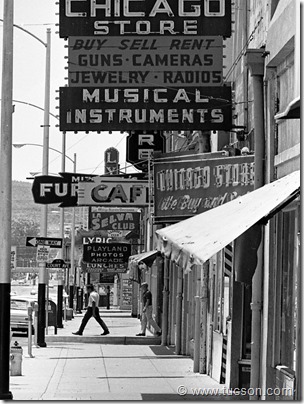
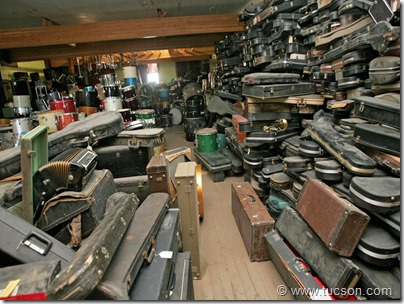

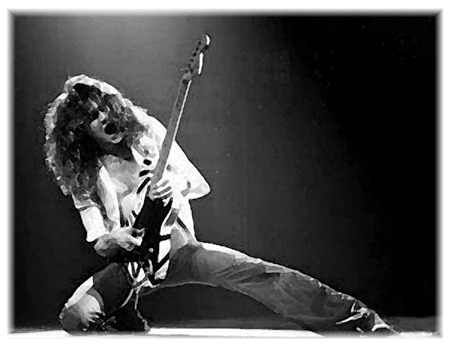
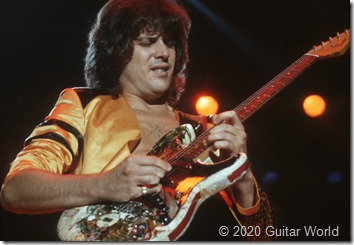
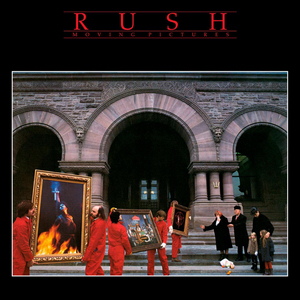 #1 -
#1 - _cover_art.jpg) #2 -
#2 - 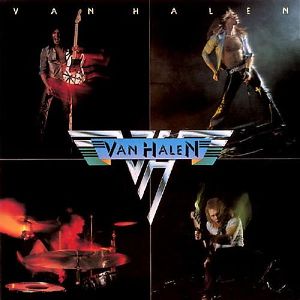 #3 -
#3 -  #4 -
#4 - 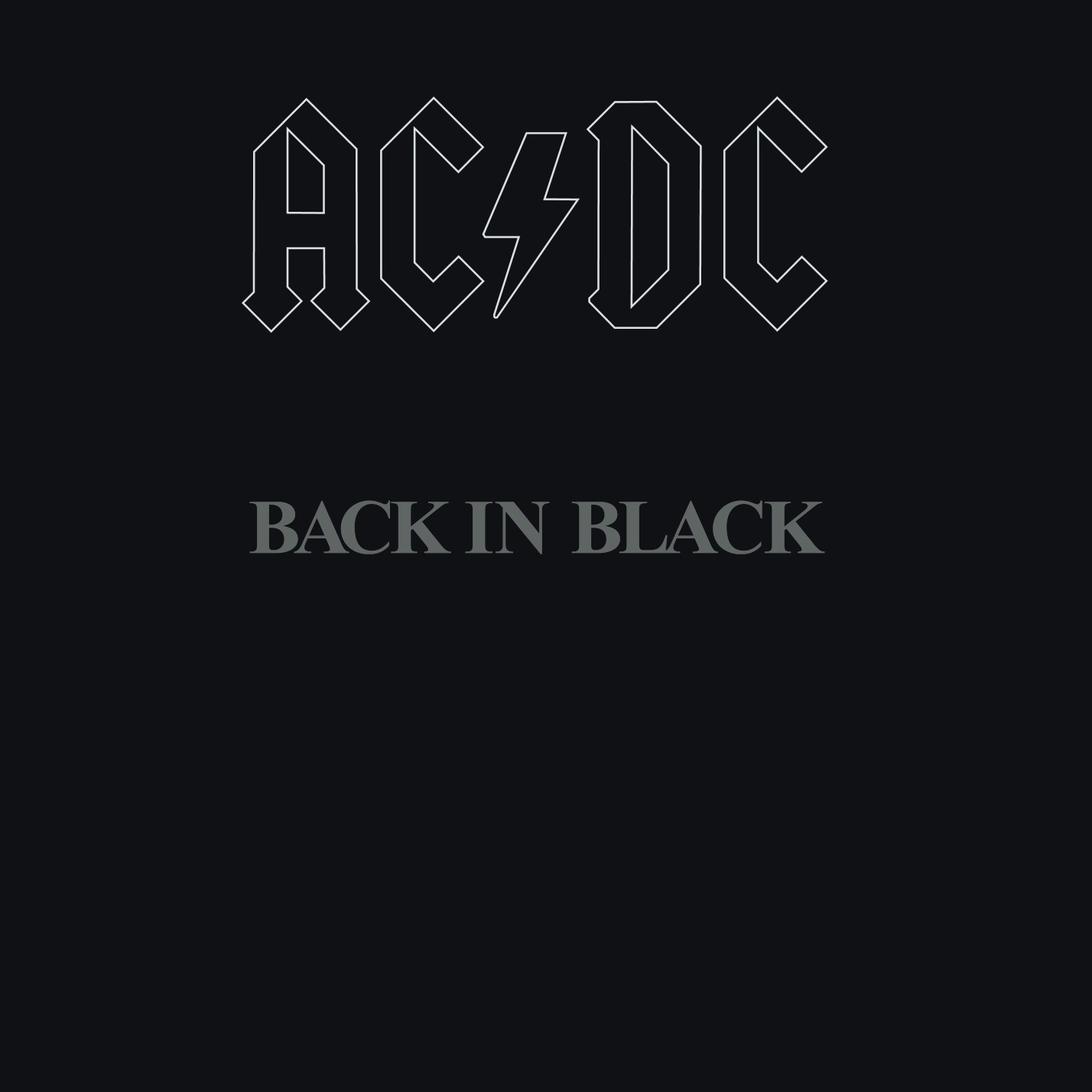 #5 -
#5 -  #6 -
#6 -  #7 -
#7 - 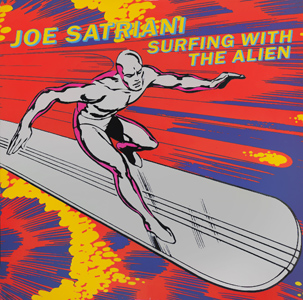 #8 -
#8 -  #9 -
#9 -  #10 -
#10 - 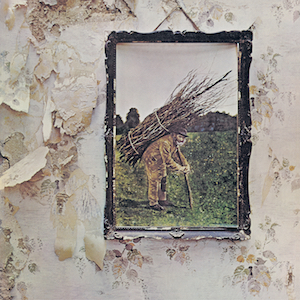 #11 -
#11 -  #12 -
#12 - 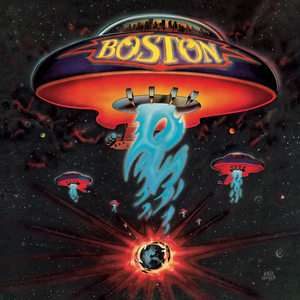 #13 -
#13 -  #14 -
#14 -  #15 -
#15 -  #16 -
#16 - .jpg) #17 -
#17 - 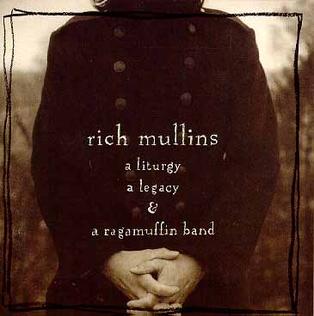 #18 -
#18 -  #19 -
#19 - 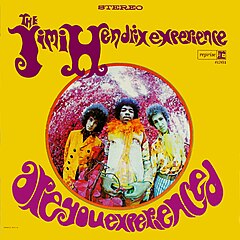 #20 -
#20 - 